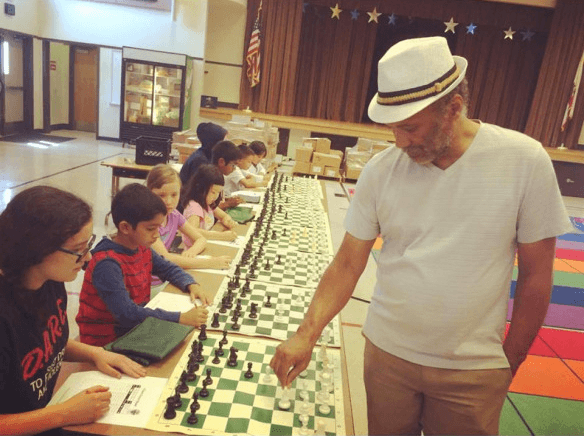"The philosophy and similarity of andrew tate and leonardo da vinci"
You’re going to have to bare with me on this one…
I’m unsure, at this moment of grasping this random idea and beginning to write it out if the fact that I am the first to make this connection is a good thing or not.
Actually, that’s neither here nor there. I think my interest in this ‘connection’ between two very different figures is that it is indeed random and odd. But, the connection is in a philosophy that I personally admire and hold dear to my own philosophies.
So, semantics aside regarding these two (Andrew, mainly, just for cancellation proofing purposes although I’m sure if Da Vinci was around in today’s era of TikTok a few might call him a trebuchet shagging bigot too, for whatever reason) – let’s talk about this philosophy.
Da Vinci’s ‘key’
Ostinato rigore
Leonardo da Vinci was one of if not the greatest renaissance visionary who single-handedly propelled civilisation and its knowledge, technology, science and medicine ahead hundreds of years in a mere few decades.
What did he attribute this to?
Not to superior intellect, privilege or any specific strategies or morning routines.
He believed he was no greater or no different than any man, he simply completed more iterations and attempts towards his goals. Da Vinci was indefatigable.
His saying ‘ostinato rigore’ translates to rigorous persistence / stubborn rigour / tenacious application.
“I have been impressed with the urgency of doing. Knowing is not enough; we must apply. Being willing is not enough; we must do.”
Ostinato rigore was a standard he set for himself and a philosophy which held him accountable. Through ostinato rigore, Da Vinci was able to see any obstacle as a non-obstacle, any setback as part of the process, any failure as studious and, above all, enjoy the process of persisting.
“Learning never exhausts the mind.”
Once you accept persistence is necessary and that nothing will stop you, persistence becomes the norm and obstacles become background noise.
“It had long since come to my attention that people of accomplishment rarely sat back and let things happen to them. They went out and happened to things.”
Nothing matters bar learning and doing what you have learned. Applying, building, creating, growing. Because what else is there?
“All knowledge which ends in words will die as quickly as it came to life, with the exception of the written word: which is its mechanical part.”
Nothing gets in the way.
“I love those who can smile in trouble, who can gather strength from distress, and grow brave by reflection. ‘Tis the business of little minds to shrink, but they whose heart is firm, and whose conscience approves their conduct, will pursue their principles unto death.”
Everything is exactly as it should be and exactly as it is.
Ostinato rigore is also why he believed that every student should surpass the master. In fact, if you don’t, you don’t only do yourself a disservice but your master, too.
“Poor is the pupil who does not surpass his master.”
That makes sense, right? As, if you’re rigorously persisting and putting in the iterations, you will surpass anyone who is not. Let alone the master who may have slowed down or stopped. Alongside this, the knowledge you absorb from your master’s should be applied. The gained knowledge combined with the lessons learned from the application of said knowledge and your own experience and perceptions should mean that your master is indeed left behind sooner or later — unless your master is a master of all masters.
Understanding this, too, has allowed me personally to be ‘okay’ with ‘losing’ any mentors I have gained and held above me. If your mentors and masters do not get discarded and changed, how are you improving?
Maintaining the familiar faces of masters means only that you have installed a ceiling and have forgotten to wonder at the stars beyond it.
What has Andrew ‘Cobra’ Tate got to do with this?
Sheer indefatigability
All preconceptions, opinions and emotions have to be left at the period placed at the end of this italic sentence — we are exploring a person’s philosophy and thinking critically — if you cannot achieve this without staying stuck on the person themselves, then you should not study at all.
Emory Andrew Tate III, a figure that in recent times was the most googled person on the planet and rocketed to fame, can be easily misunderstood as an overnight success.
But do you think a man who entered the Big Brother house in 2016 and won his first world martial arts championship in 2011 only began thinking about infamy in 2022?

In fact, his father, Emory Andrew Tate Jr, the former chess champion is the key to Andrew’s philosophy I’m exploring here.
“My dad taught me everything. Absolutely everything.”
Tate Jr, as stated by Chess.com, could attribute his success to his ‘uncompromising style and indefatigable h-pawn throughout his multi-continental career.’
That word again eh? Well, it’s the opener of Tate Jr’s favourite quote:
“My unmatched perspicacity, coupled with my sheer indefatigability, combine to make me a feared opponent in any realm of human endeavour.”
Andrew’s father unfortunately and tragically passed away at a chess tournament at the age of 56. However, that quote, and his father’s life and philosophy had been passed on to Andrew and — of course with Tate’s virality — has gained the ears of people around the world.
Indefatigability = ostinato rigore
To be indefatigable simply means to not tire and comes from the Latin ‘indefatigabilis’. meaning: ‘that cannot be wearied’. From ‘in’ meaning: ‘not’. From ‘defatigare’ meaning: ‘to tire out’ and from ‘de’ meaning: ‘utterly, down, away’.
To be indefatigable means:
- Never relenting.
- Never tiring.
- Being inexhaustible.
- Never giving up.
- Protracted effort despite the difficulty.
- To keep on going regardless.
Well, in order to have rigorous persistence, you need to be indefatigable.
Rigorous meaning: Adhering strictly.
Persistence meaning: Continuing a course of action in spite of.
In order to strictly adhere to a standard of continuing on your course in spite of, you cannot relent, you cannot tire, you cannot give up, and you have to keep going regardless.
What I take away from this
My personal bias is that I love Leonardo Da Vinci. To me, he’s one of if not the most fascinating people to exist in human memory and one of if not the biggest genius of that time, too. Any person who could accomplish a small fraction of what Da Vinci achieved should be studied meticulously.
And I embarked on just that. Thanks to my ADHD I was ‘allowed’ by my brain to fixate on this man. When I did that, I discovered ostinato rigore. I will always remember exactly where I was when I did, too. I was at the Da Vinci museum in Venice when I translated his philosophies of ostinato rigore from the walls and exhibitions inside.
Da Vinci and Tate aside, I have learned through my own experiences in business, fitness and more generally speaking any realm of human endeavour that you pursue progress in, you simply cannot and will not succeed without rigorous persistence.
Ostinato rigore was Da Vinci’s ‘secret’ and the philosophy of great chess masters like Emory Tate Jr. I can guarantee, whether willfully or otherwise, this is the underlying and leading factor of all success. With only exceptions in anomalies. But fuck them. Anomalies are the kryptonite to academics.

Photo by me, at the entrance to the Leonardo da Vinci Museum in Venice. Campo S. Rocco, 3052, 30125 Venezia VE, Italy.
Me in the 360 octagonal mirror room reconstruction in the Venice Leonardo Da Vinci Museum. Da Vinci created the idea of this mirror room as the first way for a human to see all of a human without turning one’s head. Ultimately aiding in the studies of anatomy.
